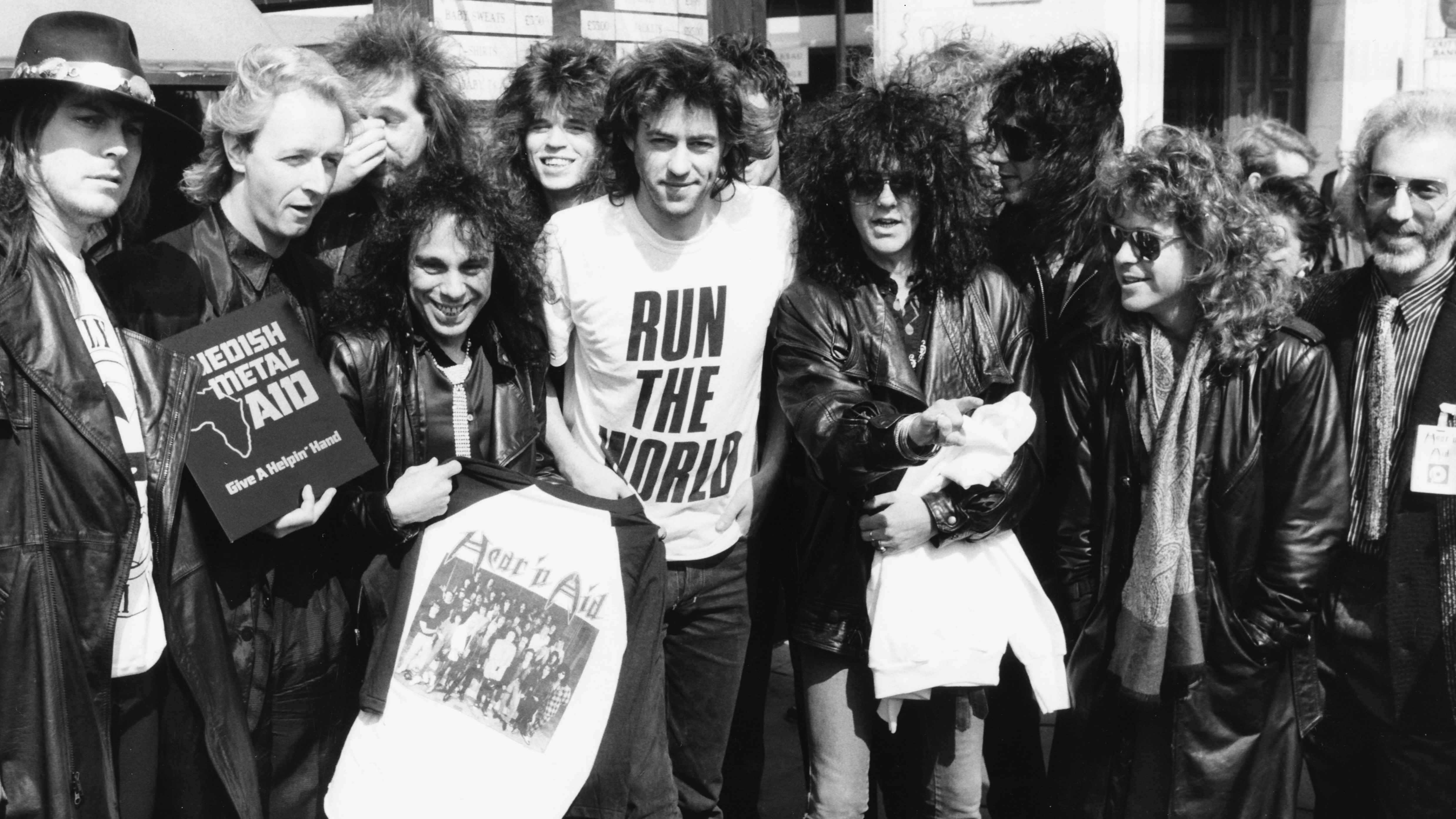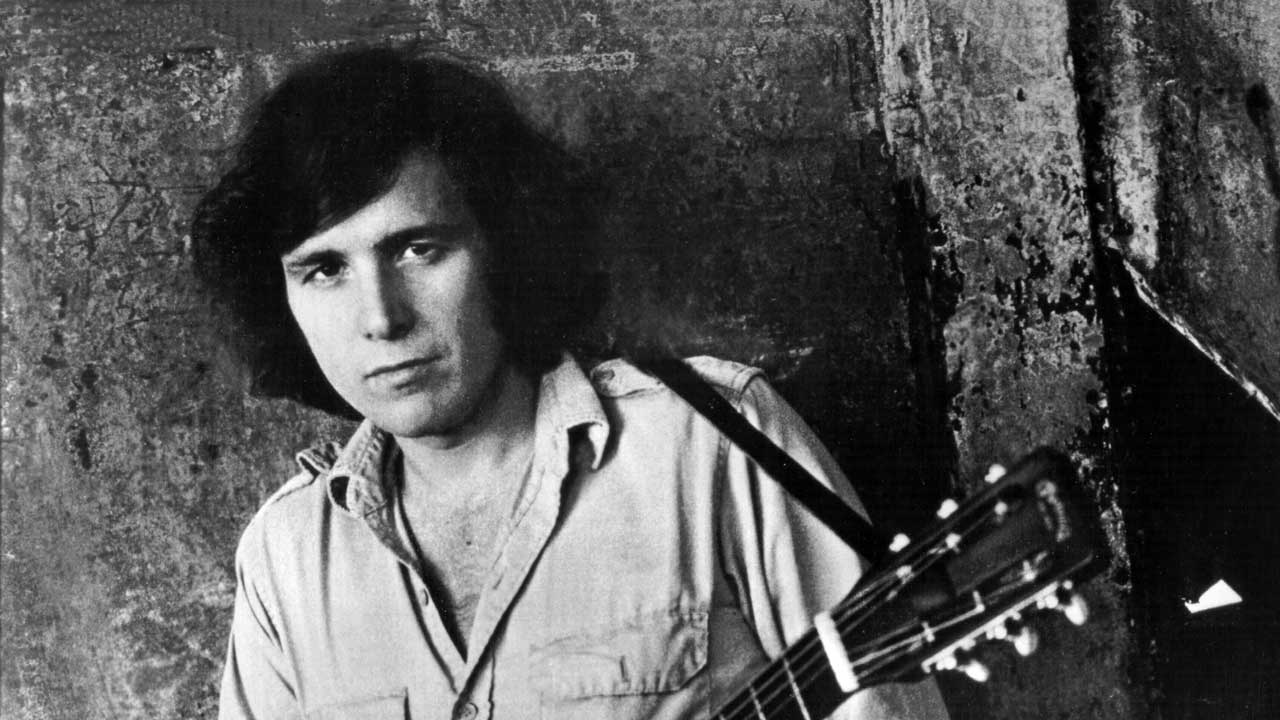Inside the Hear 'N Aid sessions: "It’s one moment in hard rock history that we can all be proud of"
Don Dokken shares his memories of the recording of all-star hard rock charity single Stars, by Hear 'N Aid

In the wake of Bob Geldof and Midge Ure's Band Aid project convened to raise money to aid famine relief in Africa, Vivian Campbell and Jimmy Bain from Dio persuaded their band leader Ronnie James Dio to help mastermind a similarly-philanthropic endeavour representing the hard rock/heavy metal world.
The result was Hear 'N Aid, and the 1986 single Stars, featuring Judas Priest's Rob Halford, Queensryche's Geoff Tate, Quiet Riot's Kevin DuBrow, Ted Nugent and Yngwie Malmsteen alongside members of Motley Crue, WASP, Journey, Blue Oyster Cult, Twisted Sister, Spinal Tap, Dio and more.
Don Dokken was one of the eight vocalists on Stars, and he remains proud of the single, and his participation in the project.

"I first heard about the Hear ’N Aid project in the same way that I imagine everyone else did, which was in a phone call from Ronnie James Dio. I knew Ronnie forever, our bands had played together many times, and he explained the idea [which originally came from Dio guitarist Vivian Campbell and bassist Jimmy Bain] and the fact that the record was for a good cause. When Ronnie James Dio asks for your help, you go, so myself and George [Lynch, Dokken guitarist] and Jeff [Pilson, Dokken bassist] signed up immediately. Michael Jackson had already done [USA For Africa single] We Are The World, but no-one from our world was invited to be a part of that, so it was cool that we could play our part too.
"We recorded Stars in May 1985 in A&M’s studio in Los Angeles [with the backing tracks for the song taped at Sound City]. I knew that Rob Halford and [Queensrÿche frontman] Geoff Tate and all the metal guys would be turning up in their black leather jackets, so I wore a white suit to the session to stand out. There’s a documentary charting the making of the record and at one point you can hear Ronnie Dio jokingly say to me, “Hey Don, GQ magazine called for you…”, which kinda reflected the relaxed, good-natured spirit of the day.
"Ronnie was producing the record, and he sent me the song a couple of days before the session, and indicated which lyrics I’d be singing. There was no debate over who’d sing what. I remember saying, “Ronnie, I have a problem with this song, because every time I sing this melody I sound just like you.” I was joking, but it’s very obviously a Ronnie Dio melody, and I had to figure out how to deliver my lines differently, because everyone else was sounding like a wannabe Ronnie."
"I can honestly say though that there were no ego clashes on the day, zero, and no-one making diva demands from anyone at the studio. That came as a pleasant surprise, and I think it was a testament to the respect everyone had for Ronnie.
"I knew everyone there, and truthfully I wasn’t so fond of some of those people, so I didn’t plan upon hanging around all day to watch everyone get drunk, take coke and talk shit: I asked Ronnie for my time slot, and I remember I was booked in to sing at 4pm, so I turned up at 3pm, nailed my lines, stuck around for the photo call with all the other musicians, and then headed home. I know there was a proper party afterwards, with like 200 people crammed in to a bar across the street which could maybe hold 80 people, but in those days our lives in Dokken were spent partying, so I didn’t feel like I was missing out.
Sign up below to get the latest from Classic Rock, plus exclusive special offers, direct to your inbox!
"I guess the various rock stars egos came in to play afterwards, because I know that the release of the record was delayed for months [until January 1986] while Ronnie negotiated with the various labels and managers. The record probably lost some momentum as a result, which was a shame, but that side of things was out of our hands.
"After the record finally came out Wendy Dio estimated that it made about $1 million initially. When the money raised had been allocated to the various charities, I got to visit a building it had bought in the [San Fernando] Valley, where homeless kids could come to get fed, and it was nice to see that the project had genuinely made a difference in people’s lives. I’ve been asked to do a number of charity records since, and sometimes people are pretty vague about exactly where the money is going: in some instances it never leaves their own bank account. You have to be careful, because it’s like, don’t take advantage of me and use my name to pay for your fucking wife’s boob job.
"But it was cool to take part in the Hear ’N Aid record. I remember some people acting all shocked that guys in hard rock and heavy metal bands actually cared about anyone but ourselves, like we were all monsters with nothing but drugs, girls and money on our minds. That says more about those people than it does about us. It’s one moment in hard rock history that we can all be proud of."

A music writer since 1993, formerly Editor of Kerrang! and Planet Rock magazine (RIP), Paul Brannigan is a Contributing Editor to Louder. Having previously written books on Lemmy, Dave Grohl (the Sunday Times best-seller This Is A Call) and Metallica (Birth School Metallica Death, co-authored with Ian Winwood), his Eddie Van Halen biography (Eruption in the UK, Unchained in the US) emerged in 2021. He has written for Rolling Stone, Mojo and Q, hung out with Fugazi at Dischord House, flown on Ozzy Osbourne's private jet, played Angus Young's Gibson SG, and interviewed everyone from Aerosmith and Beastie Boys to Young Gods and ZZ Top. Born in the North of Ireland, Brannigan lives in North London and supports The Arsenal.
